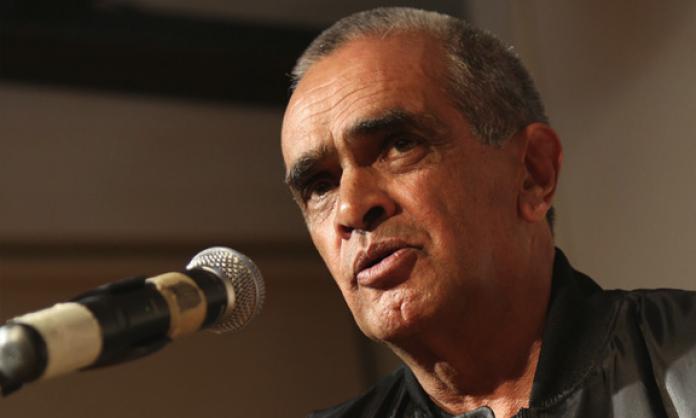Twenty-five years after the release of Yothu Yindi’s classic 1991 song “Treaty”, its lyrics are as relevant as ever to the government’s push to recognise Indigenous people in the constitution.
On 3 February, hundreds of members of Indigenous communities in Victoria attended a state government forum, the first in 20 years, and discussed constitutional recognition.
The government got more than it bargained for. Seizing the opportunity to be heard in a “debate” that has so far consisted of a multimillion-dollar campaign backed by government and media promoting the Recognise case, those present voted unanimously: “We as Sovereign People reject Constitutional Recognition”. A call for a treaty and for election of a council of elders followed.
Veteran Aboriginal activist Gary Foley was one of those who spoke in the discussion against this “diversionary tactic designed to take our attention away from the real issues”.
“As somebody who was around and worked on the 1967 referendum, in the immediate aftermath it achieved nothing”, he told Red Flag. “And even if you could get a constitutional referendum passed today … what will it change? Will a few phrases in the constitution solve the problem of the incarceration rate? Is it going to get anybody out of jail? Is it going to improve our health statistics? Is it going to do anything to improve the broad political and economic conditions of Aboriginal people? No, it’s not.”
Is it going to do anything to improve the broad political and economic conditions of Aboriginal people? No, it’s not. Gary Foley
In addition, Foley said, constitutional recognition is designed to “divert white Australians from the real issues such as the outrageous incarceration rate that is worse today than at the time of the Royal Commission [into Aboriginal Deaths in Custody] … which found the reason for deaths in custody was the rate at which we were locked up … because the Australian criminal justice system is fundamentally racist”.
It is notable that the Recognise campaign has not organised national consultation meetings such as the Victorian one – as Foley explained, this meeting had 200 people in Melbourne and 10 other communities online across the state. In his view, meetings like this “would get the same results around Australia”.
Without grassroots support, the push for constitutional recognition has come from those whom Foley dubs “elitist, government-approved pseudo-leaders”. In particular, he noted the conspicuous absence of Noel Pearson and Marcia Langton, both beneficiaries of the largesse of Melbourne University, which is only a short distance up the road from where the open meeting was held.
On the other hand, he emphasised the presence of young people among the speakers. A woman from north-western Victoria denounced the imposition of the Basics card on her community. Far from the “empowered communities” espoused by Langton and Pearson, this is evidence of disempowering the most vulnerable by removing control of their finances – in Foley’s words, “like the mission managers of the 1930s”.
During the meeting, Foley suggested a clear motion to reject constitutional recognition was necessary: “Because of the national push for this nonsensical thing … it may be too easy for the state government to ignore the rejection of that idea here”.
All of this puts paid to the valueless assurances from Abbott, and now Turnbull and Shorten, that constitutional recognition is something Indigenous people want.
It is a welcome change that the voices of Aboriginal people get heard saying no to constitutional recognition, instead of opposition to the Recognise campaign being presented as merely another platform from which notorious racists such as Andrew Bolt and Cory Bernardi drown out Aboriginal voices.
Gary Foley will be speaking at Marxism 2016. For tickets head to http://marxismconference.org.









